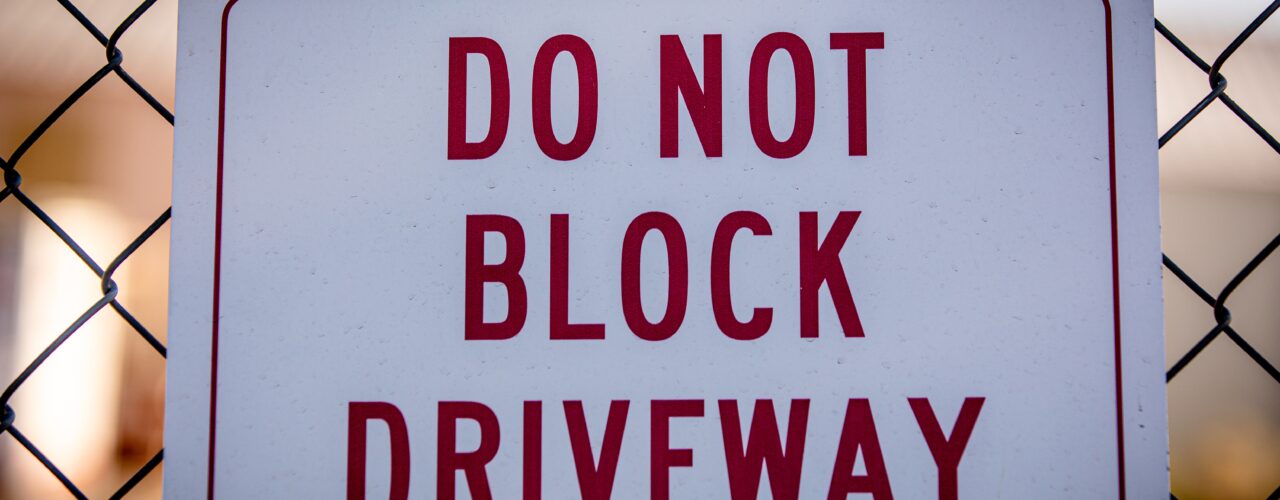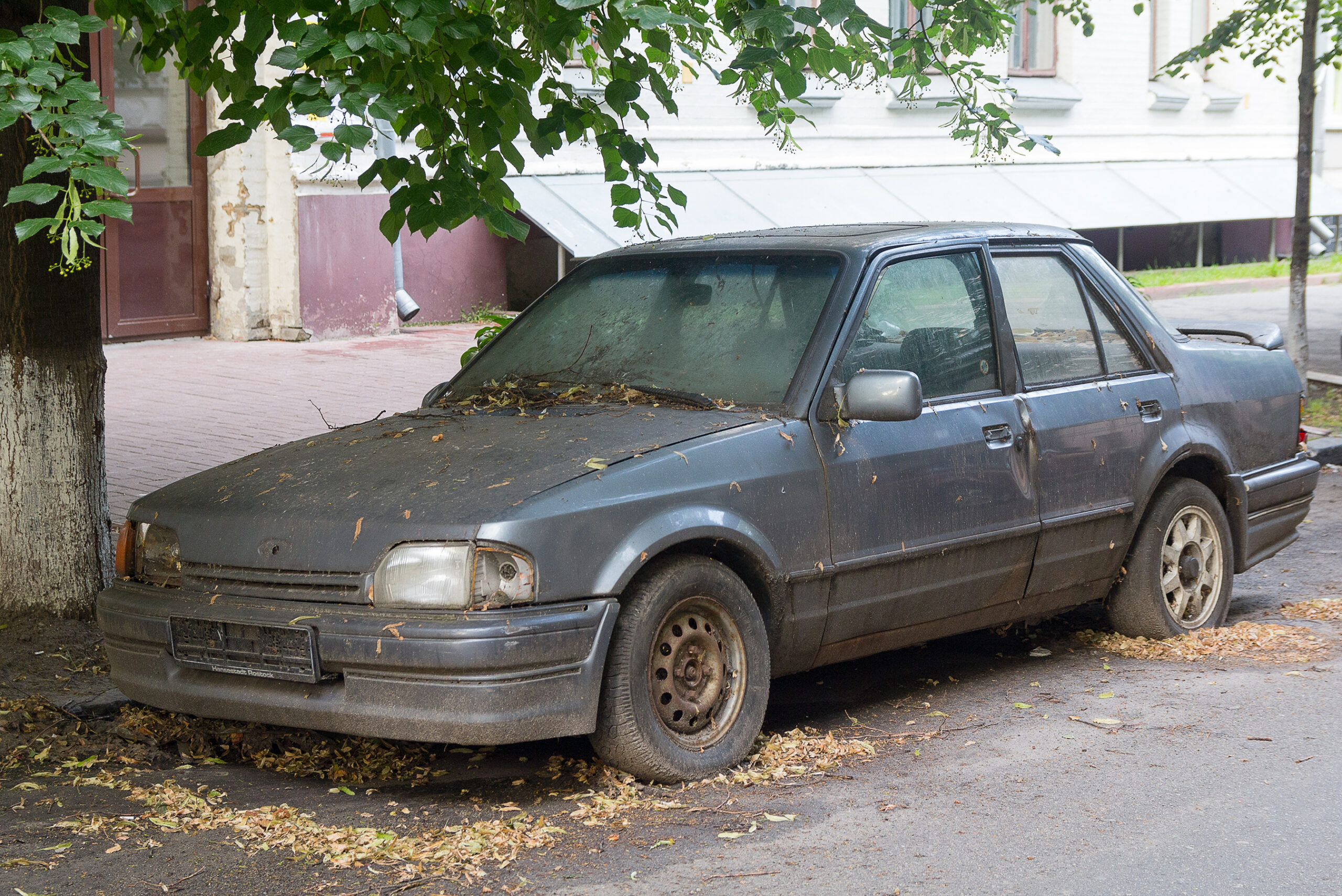
How to handle abandoned vehicles and large items on rental property
14-08-2025 | Landlord and Tenant DisputesDealing with an abandoned vehicle on a rental property can be difficult. From legal exposure to health and safety concerns and financial loss, if a tenant abandons a car on a rental property, there can be multiple consequences.
This article will provide a complete, in-depth guide on how to deal with an abandoned vehicle on a rental property by providing key legal frameworks and a step-by-step process for landlords.
Can I move an abandoned vehicle on my rental property?
Before taking any action, it is important to understand the legal framework that a landlord must work within. First of all, if a tenant abandons a chattel such as a vehicle at the property, under the 1977 Torts Act, landlords must notify tenants and give them the opportunity to collect their abandoned vehicle before taking any action themselves.
This typically involves serving the tenant a written notice that provides a date for collection. The minimum time to wait after serving the notice is 14 days, but 30 days is recommended to ensure enough time. If the tenant doesn’t respond to the notice by the given date and the landlord has good reason to believe that the vehicle belongs to the former tenant, then the landlord may be entitled to dispose of or sell the vehicle, provided they have followed due process.
Another route to take is to contact the local authority. Under the 1978 Refuse Disposal Act, local authorities have the duty to remove genuinely abandoned vehicles, even on private property. Although their willingness to act can vary from council to council. Check your local council website for a report form which allows you to track its progress. It is important to remember that under the 2012 Protection of Freedoms Act, it is illegal to move vehicles on private land without authority and therefore, landlords should always seek legal permission before doing so.
What is an “abandoned” vehicle?
Before we go through the process of how to deal with an abandoned vehicle on a rental property, let’s specify what actually counts as an abandoned vehicle. Although there is no legal definition of what ‘abandoned’ is defined as, there are some signs to look out for. These include:
- The vehicle is untaxed or uninsured
- It is damaged with broken windows or flat tyres
- It hasn’t moved for a long period of time
- It is left on the property without permission
You should document any evidence that will help support your claim that there is an abandoned vehicle on your rental property. This will help support your assessment and get it dealt with more effectively.
Step-by-Step Practical Process for Landlords
If you find yourself dealing with a tenant who has abandoned a vehicle on your property, here is the process you should take to deal with it legally and responsibly.
- Document the vehicle in detail: Ensure that you take photographs of the condition, the location and the license plates.
- Identify the owner: Use DVLA to try and trace the keeper or tenant records if you believe it belongs to a former tenant.
- Service notice: Use the Torts Act to serve a notice which requires the tenant to remove their vehicle.
- Notify the council: Report the abandoned vehicle to your local council or police. Although they might not act on it, it is part of the legal process.
- Hire a bailiff if required: A professional can help you to carry out DVLA and HPI checks as well as service notice and liaise with the local authorities to arrange removal.
- Dispose of or sell the vehicle: If the vehicle is beyond repair, consider scrapping it or selling it if it is still in good condition. The proceeds need to be accounted for properly.
- Account for proceeds and costs: Deduct any reasonable costs and avoid profiteering.
- Maintain a paper trail: Make sure you keep all communications between you and the tenant and authorities to ensure defensibility.
What not to do if you have an abandoned vehicle on your rental property
While it can be frustrating to have an abandoned vehicle on your rental property, it is important that you follow the official process and avoid the following.
Don’t…
- Move or tow the vehicle yourself
- Hire informal removal solutions
- Rely solely on the council
It is always best to follow the official process and get legal advice before taking any steps toward removing the vehicle from your property.
Legal risks of mishandling an abandoned vehicle on your rental property
If you take the risk of dealing with an abandoned vehicle on your rental property without following the official process, you are putting yourself at risk of serious legal consequences. Even though it can seem time-consuming, it is important to follow the right procedures. Here are some of the consequences landlords can experience from mishandling an abandoned vehicle on their rental property.
- Unlawful interference with goods: If you remove or dispose of a vehicle without following the Torts Act 1977, you could be subject to civil claims from the former tenant or the owner of the vehicle.
- Claims for damages: If any damage is caused to the vehicle by disposing of it incorrectly, you could face compensation claims for the loss of property.
- Criminal liability: Under the Protection of Freedoms Act 2012, it is illegal to move or clamp the vehicle on private land without lawful authority. Even though it may be your land, you cannot just remove the vehicle without following the correct procedure.
- Invalidating your insurance: If you don’t follow the correct procedure, you could end up breaking the terms of your landlord insurance, leaving you unprotected from any financial and legal claims.
The best way you can avoid these consequences is to remain compliant and follow the correct process by detailing your actions as much as possible while seeking legal advice.
Handling non-vehicle bulk abandoned items
If you find yourself dealing with other abandoned items such as furniture, white goods or personal belongings, you will need to follow a similar process as these are also considered chattels under the Torts Act 1977. Here is the process we recommend to follow:
- Document the items: Make sure to take photos of the items and record their location and condition. This will be used in the event of a dispute.
- Serve notice to the former tenant: Provide the tenant with a notice with a deadline of anywhere between 14 and 30 days to collect their items.
- Store items safely and securely: Whilst you wait for your tenant to collect their items, it is your responsibility to ensure the items are stored safely until they are collected.
- Disposal or sale of items: If the tenant does not collect the items by the time provided, then you may be entitled to dispose of or sell them. It is important to note that you must not profit from the sale.
Legal protections for landlords
By following the proper processes under the Torts Act and RDAA, you will ensure your protection against criminal and civil liability. If these steps are not followed carefully, there is the possibility of claims for damage or value. We always recommend seeking legal advice before taking any action in the event of finding an abandoned vehicle on your rental property.
Reference checklist if a tenant abandons a vehicle on your property
Here is a handy checklist of what you should document throughout this process.
- The condition of the vehicle or property is determined through photographs
- The owner of the property
- The notice was served to the tenant
- Notification of the property to the council
- Communication with professionals
- The method of disposal or sale
As we have discussed in this article, it is so important to measure, document and take a legally compliant approach if your tenant has abandoned a car on your property. It is important to remain patient and diligent during this process and understand that, although it can be frustrating, it ensures your protection.
For more information on how to protect your property as a landlord, be sure to visit our resource centre. At CIA Landlords, we have the expertise to find the best landlord insurance deals that are suitable for your needs. Contact us today at 01788 818 670 for a quote!
We won't be beaten on any like for like landlord insurance quote.
Get a quote

